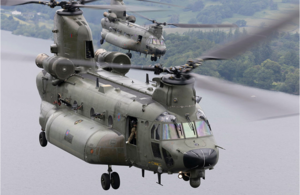Training for armed forces recruits continues to improve but new pilots face delays
Ofsted has today published its 16th annual report on the effectiveness of care and welfare arrangements for recruits, trainees and officer cadets (OCdts).

Training has continued to improve this year with no establishments found to be inadequate. 11 of the establishments visited were graded good or outstanding and one was found to require improvement.
Read the full report: Welfare and duty of care in Armed Forces initial training 2023 to 2024
In all but one establishment, recruits, trainees and OCdts benefited from excellent or good quality training and very effective care and welfare arrangements. This means that trainees are very well prepared for their next phase of training or to start their first military job.
However, inspectors did find that trainees are spending too much time in holdover, which is where one training course has finished and another has yet to start. This is especially true for trainee pilots and aircrew – in the worst cases, trainee pilots are waiting several years to start their flying training. Trainees report that this delay affects not just their careers but their motivation and personal lives.
Where trainees must wait to start their next phase of training, all services need to ensure that trainees are engaged in meaningful activities that maintains their morale while continuing to develop their military and specialist skills.
As in previous years, inspectors continued to find problems with infrastructure and facilities. While improvements have been made the standard of trainee accommodation continues to be poor in some establishments.
Ofsted has issued several recommendations for the MoD, including:
-
Urgently improve the infrastructure of the training estate, especially any accommodation where trainees are living in unacceptable and/or deteriorating conditions.
-
Minimise the time that trainees spend in holdover, especially trainee pilots and aircrew from all 3 services in flying training, so that they can complete their training as quickly and efficiently as possible and start their first military jobs.
-
Engage trainees in holdover in meaningful activities that maintain their morale and continue to develop their military and specialist skills and knowledge.
-
Give all new recruits uniform and equipment that fit them properly, including military backpacks and body armour, so that they can participate fully in training.
Ofsted’s Chief Inspector, Sir Martyn Oliver said:
“I am delighted to present my first MoD welfare report as His Majesty’s Chief Inspector, and I am impressed with the hard work and diligence that my inspectors have seen over the last year.
“I congratulate commanding officers, and their staff. Military and civilian staff work hard to train and care for recruits, trainees and OCdts, sometimes despite poor infrastructure and resources.
“I urge senior personnel in the Ministry of Defence and in government to respond swiftly and decisively to the recommendations we have made.”
Notes
Inspectors visited 11 initial training establishments, 5 University Officers’ Training Corps (UOTC) units (in a combined inspection) and the UOTC headquarters at the Royal Military Academy Sandhurst.
Press office
8.30am to 6pm Monday to Friday 0300 013 0415